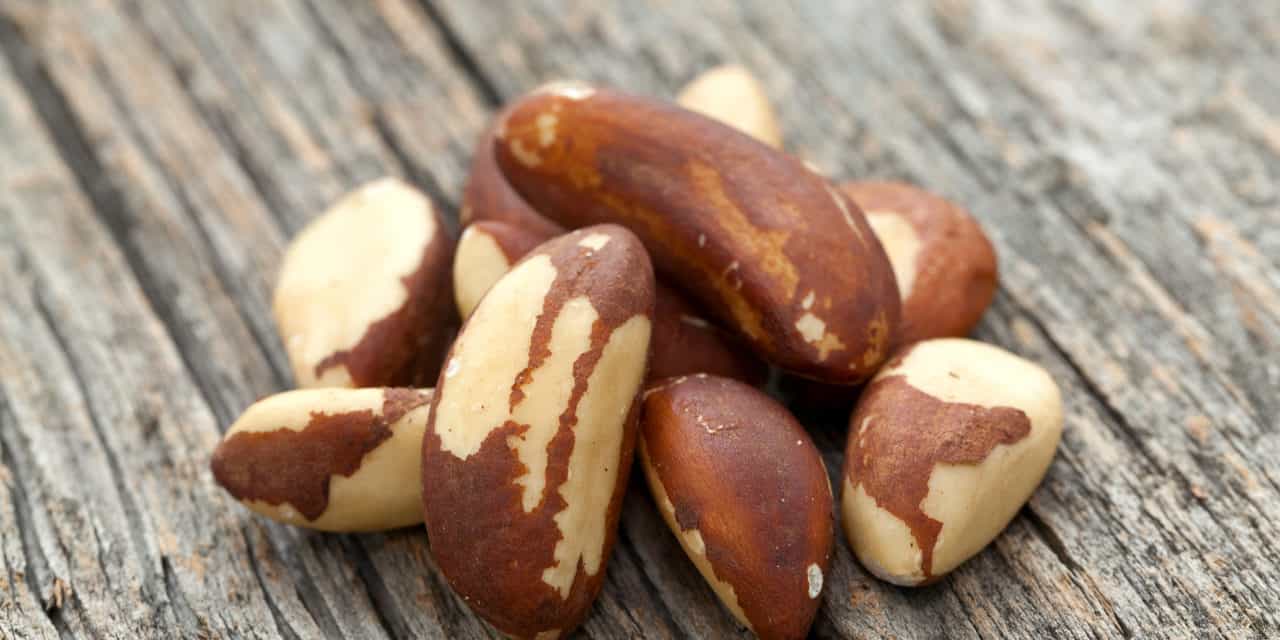What is selenium?
Selenium benefits people in many ways, and the essential trace mineral has a number of anti-aging and anti-cancer properties.
Named after the goddess of moon, Selene, selenium was found to contain powerful antioxidant properties in 1973.
Selenium has been of great interest because of its important role in increasing the effectiveness of vitamin E, another nutrient that prevents tissue damage caused by free radicals. Sufficient selenium levels prevent vitamin E deficiency and its complications.
In the body, the greatest concentration of selenium is in the liver, kidney, heart, nails, spleen and tooth enamel. Although cells require only small amounts of selenium, if they receive an inadequate supply it can deteriorate the joints and heart.
Selenium benefits: Why do we need selenium as we age?
Selenium slows down aging and prevents diseases that arise due to advancing age, resulting in increased longevity. It is essential in producing selenoproteins, which are classified as antioxidant enzymes. Glutathione peroxidase or GPx is a selenoprotein that inactivates peroxides, which people believe cause cancers and atherosclerosis.
Free radicals are the byproducts of cellular metabolism, a set of chemical reactions that make it possible for your cells to utilize energy from your food intake.
As you age, accumulating free radicals causes irreversible damage to your cells and their DNA, increasing your risk for cancer and heart diseases.
Selenoproteins reduce your chances of developing these diseases by scavenging the free radicals. Selenium reduces the incidence of prostate, colorectal and lung cancers.
In addition, selenium has shown to protect your heart from different cardiovascular diseases by increasing good cholesterol (high-density lipoproteins) and lowering the bad cholesterol (low-density lipoproteins).
Taking oral supplements of selenium can also delay nerve and vision degeneration.
Can I get enough selenium in my food?
Insufficient intake of foods rich in selenium is the common cause of selenium deficiency.
To get the best selenium benefits and ensure intake is sufficient, you should consume foods high in selenium, such as Brazilian nuts, mushrooms, cod, shrimp, snapper, tuna, halibut, salmon and calf’s liver. Muscle and organ meats, whole grains, garlic and dairy products are also good sources.
The best way to eat these foods is in their unrefined or unprocessed forms.
Selenium supplements: In what form should I take it?
Selenium is available in the form of tablets, capsules or pills. Supplements are either chelated or non-chelated. The bioavailability of the chelated organic forms selenocysteine and selenomethionine are most recommended. Selenium may also be a part of a vitamin-mineral supplement.
If you have a history of skin cancer or hypothyroidism, you should avoid selenium supplements.
In addition, selenium has shown to decrease the motility of the sperm cells; thus, men with infertility problems should avoid supplementation.
It is also of utmost importance to follow the right dose for you. Initial research reveals that excess and long-term intake of selenium supplements may increase your risk for skin cancer, prostate cancer and type 2 diabetes.
What is the best source of this supplement?
Unprocessed foods high in selenium are the best way to consume the nutrient.
Recent research shows that the most highly concentrated natural food source for selenium is Brazilian nuts. A daily intake of 1-2 Brazilian nuts is as effective as taking 100mg of selenomethionine daily in raising selenium levels and enhancing GPx activity and selenium benefits.
The selenium content of the soil will determine the selenium content in plant foods . If you live in an area where the soil selenium content is low, consider taking selenium supplements.
Your body absorbs chelated selenium supplements easiest, and it also absorbs selenomethionine quite easily.
What dose of selenium should I take?
As a dietary supplement, take 100-200mcg of selenium daily to improve overall health and increase your resistance against different diseases.
Don’t take more than 400mcg of selenium per day without consulting your doctor.
Are there any risks with selenium supplements?
Long-term use of selenium supplements could significantly increase your risk of skin cancer, prostate cancer and type 2 diabetes.
Taking an excessive amount of selenium may cause selenosis, which is characterized by reversible balding, brittle nails, garlic odor to your breath, decreased mental alertness, tooth decay and discoloration, intestinal distress and weakness.
Are there any special requirements when I take selenium?
You should take selenium supplements with meals for better absorption.
Does this nutrient need other compounds to accompany it for optimal absorption?
You should take selenium with vitamin A and E and beta-carotene for increased effectiveness.
If I supplement with selenium, do I need to take this in divided doses?
Take selenium supplements in divided doses with meals.
How to determine if I am deficient in selenium?
Your doctor can measure selenium in plasma, serum, red blood cells or whole blood. They may test glutathione peroxidase, an enzyme dependent on selenium, to detect selenium deficiency.
Last Reviewed 06/01/2017
Ann-Mary Amber
Latest posts by Ann-Mary Amber (see all)
- This is why gut health is so important - 24/02/18
- Best antioxidants for skincare - 18/09/17
- CoQ10 health benefits - 09/07/17







